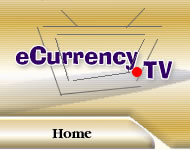Organizations, companies and countries tend to put up walls that restrict
the movement of currency, people, and information. These entities establish
departments in order to manage the market instead of letting the market
manage them. When they do this they interfere with the flow of data
between themselves and the market demand preventing economic growth.
Efficient and secure conversion of common currency is a major barrier
to international merchant to consumer exchanges. The growing need for
an International currency or at least a digital currency conversion
system seems obvious to me. Alas, solving such a problem is easier said
than done, as seen with the emergence of the Eurodollar and all of the
challenges it created for International businesses stationed in Europe.
There are those that believe the problems implementing an ecurrency
solution like DXinOne will be far
worse than implementing the Eurodollar. We don't think this is necessarily
the case.
Most of the arguments we hear about ecurrency as a non-viable, unstable
solution to international commerce comes from pseudo-economists. These
oponents would have us believe that a currency needs to be backed by
a military in order to have value to the user. This is something that
I disagree with in essence. My response to such a presumption is beyond
the scope of this rant but goes something like this: “What really
is money in the first place?”
It can be argued that the US dollar has only the value that we agree
upon. The same goes for gold and silver. The value of the US dollar
is in serious question in Europe as I write this article. My friends
who just returned from Europe said that in Spain they couldn't cash
American travelers checks. Currently it takes the US Federal Reserve
1.7 cents to smelt a 1.0 cent penny. This value contradiction presents
a serious problem determining the global value of a currency outside
of its own economic microcosm. This value is mostly a social agreement
that is supported by the infrastructure of any given economic system.
(I'm sure that an economist would argue with me on this point). This
value system is then supported by an ongoing marketing campaign via
the government that prints the aforementioned currency. Sometimes
this marketing campaign is backed by a military campaign. Sometimes
the two campaigns blend together into such an unrecognizable media blitz,
that one begins to wonder if a good "marketing campaign" is
not more important than a good "military campaign."
This all brings up another rather esoteric economic question: “Why do
people value one currency over another”.
If it can therefore be argued that the US dollar has less value than
what our government says it is worth, it would seem to me that people
would decide to get paid in something that was debt free and 'sovereign'.
I know that is impossible, really, but it could make sense in the age
of economic "globalism". People might "get hip"
to the fact that money is literally not all that it is
marketed to be. Given a choice, they might start using the currency
that rewarded them the most. Its all a bit of a house of cards, isn't
it? They might choose a currency that was not backed by national debt.
If the consumer is given a choice- that is if it was just as easy to
pay for something in Wal-Mart with Eurodollars as it is US dollars,
the consumer may choose the currency where they are rewarded the most,
or that offers the greatest savings. Currencies might have to advertise
and compete for market value! They might even be forced to start
running advertisements on the back of the ten dollar bill.
Unrealistic you say? Wal-Mart would never allow multiple currencies
inside a store based inside the United States?
What do I mean by advertising on the back of a ten dollar bill?
We believe that the economic stability of a currency is based entirely
upon its perceived value- i.e. a great preemptive marketing campaign.
DX in One is building a system
that is in a world of its own. It is the subject of much debate and
conjecture. The internal ecurrency trading system native to DX in One
is driven by perceived value and preemptive marketing strategies. It
would probably take an experienced "customer loyalty" marketer
to grasp what they are attempting to do.
This is total conjecture but an entertaining thought. If "perceived
value" determines the economic stability of a currency (or ecurrency),
then in the new global electronic economy good marketing
campaigns will not only influence the perceived value of a given
currency, marketing companies will actually ADVERTISE directly on the
back of legal tender (if they even bother to print it). DX
in One, is the first company that I have seen that is not only attempting
to print money, but advertise on the back of it. By positioning themselves
to be the primary ecurrency trading and buyer-seller secure solution
across international lines
First of all, understand that I am a marketer by trade, not an economist.
I understand how money works by watching it, not by theorizing about
how it should work. From a marketers perspective, and from my
knowledge of big Branding campaigns, I believe that it is a mathematical
impossibility for the United States economy to be functioning at all.
It is driven firstly by marketing and advertising and SECONDLY by the
actual numbers. The whole economy runs on abstract marketing "futures"-
fueled by consumer demand and maintained by the buying and selling of
debt. All the while Mr. Greenspan keeps his lips on the inflationary
balloon desperately trying to maintain stability in the system and the
value of the US dollar. All the while we pretend that a penny is worth
a penny. In China they know damn well that a penny is worth .3 cents.
(At the time of this article).
This is why we find it funny when people claim that DX
in One is an artificial system. Sounds a lot like the Federal Reserve
to me.
If the 'illusion of money' ever becomes perfectly obvious to the "average
Joe", and he is given the power on his home computer to easily
choose which type of currency he would like to apply towards international
purchases, he is going to use the one that offers him the most rewards.
That being said, it should be mentioned that tens of millions of dollars
worth of “frequent flyer” miles have been cashed in by eager participants
at airports all around the world. The customers were seduced by the
credit card companies who rewarded them with a form of “travel e-currency”
called frequent flyer points. So many people cashed in on the frequent
flyer miles that the airlines started losing large amounts of money.
The marketing companies under-anticipated the consumer response to the
"piggy back" currency called "frequent flyer miles".
So they started minimizing the value of the "frequent flyer ecurrency"
by limiting the time, place, and frequency the flyer miles could be
redeemed. They started limiting the value so much, in fact, that it
became the butt of many jokes and counter-marketing campaigns by credit
card companies who promised "anytime, anywhere, anyplace frequent
flyer points".
In this marketing model, the consumer had a poor perceived value for
"frequent flyer mile" ecurrency. It started to diminish in
value globally. Frequent flyer points became the butt of jokes and the
fraud was exposed: that it was LITERALLY impossible to mathematically
compensate the consumer for the number of frequent flyer points they
had collectively accrued. (The consumer has not awakened to the US national
debt as a similar phenomenon. Perhaps because there are no counter-marketing
campaigns.
The point being made by the 'frequent flyer" example is that
the consumer base greatly valued a "piggy back" ecurrency
that was not backed by a military. It is unfortunate that it had poor
consumer perception and the at the points had zero collateral. That
is: there were not enough extra airplanes in the vault to cash in all
the points at one. The demand exceeded the supply.
So how do you solve this problem? How could you create an ecurrency
that actually creates the market because of its very existence? How
could you create a currency that protects both the buyer and seller
in any transaction across international lines? How do you create a currency
that is evangelized by both vendors and consumers alike? How do you
create an ecurrency that gives you rewards every time you use it and
rewards you every time you share it with others? How do you create an
ecurrency that can be both an investment and a career?
What kind of a demand do you think this type of ecurrency would create
if it provided the translation of all other e-currencies across international
lines. What kind of perceived value do you think this high-demand "currency"
would create. This ecurrency would be both "money" and a marketing
campaign . . . in a sense- with an advertisement on the back of every
ten dollar bill.
We think DX In One is such a
system, or comes close to it. Find more information about DX in One,
click here.
Learn About Electronic
eCurrency Exchange Processing
No selling
No risk
No competition
Low investment
Click Here!


